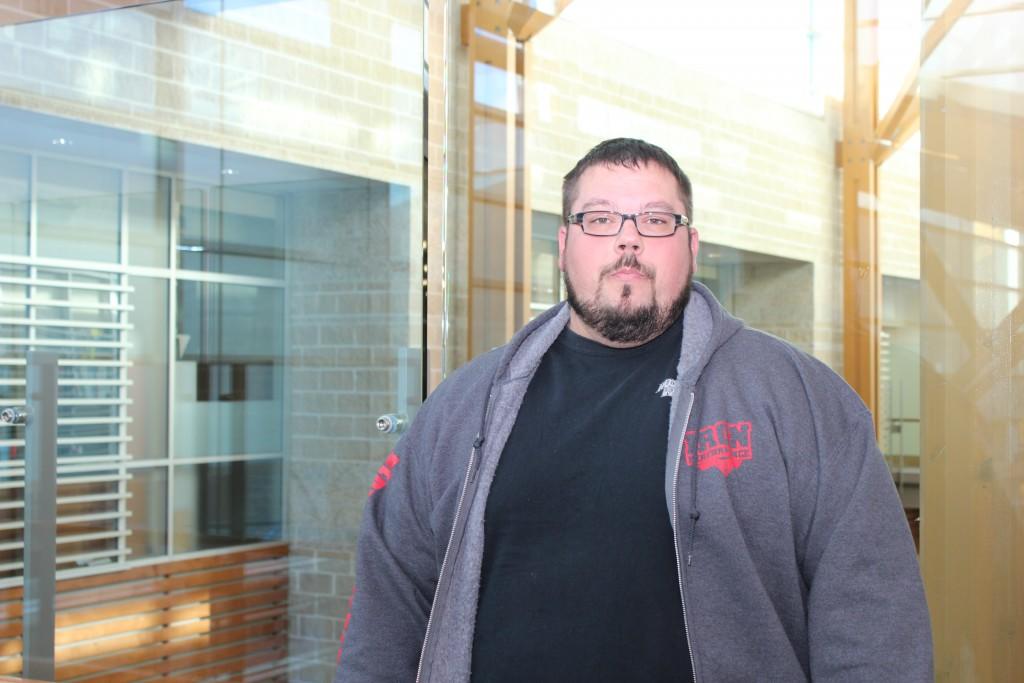Heroic TBRHSC Nurse Helps to Save a Life
by Maryanne Matthews
 Kyle Langlois was able to put his valuable experience as a Mental Health RPN at TBRHSC to good use when he intercepted a suicide attempt at Niagara Falls. Langlois’ heroic efforts, along with the emergency response team on site, ultimately saved a young man’s life.
Kyle Langlois was able to put his valuable experience as a Mental Health RPN at TBRHSC to good use when he intercepted a suicide attempt at Niagara Falls. Langlois’ heroic efforts, along with the emergency response team on site, ultimately saved a young man’s life.Mental illness is everywhere, impacting people of all walks of life. Kyle Langlois, a mental health nurse at Thunder Bay Regional Health Sciences Centre (TBRHSC) knows this well. You may have heard about his recent experience while attending a mental health conference in Niagara Falls. Langois came across a young man attempting suicide, and applied his skills to develop a rapport with the distressed man.
“I’m not a spiritual man by any means, but sometimes I think we are meant to be in the right place so that we can be of service to others,” explains Langlois. “I saw a young man standing at the railing of the Niagara Falls barrier wall and realized … he was preparing to jump.”
Niagara Falls is a busy attraction, but most people just walked by the young man without realizing there was a problem brewing. According to Langlois, that’s one of the dangers of mental health – it can be invisible to those who aren’t experiencing it. It was thanks to Langlois’ training and experiences as a mental health nurse that he was able to recognize the signs of distress. His training in crisis management is what led him to intervene and confidently offer assistance.
While this story has a happy ending, it serves to shine light on the harsh realities of what can happen when mental health struggles go unnoticed. In some cases, even if someone does recognize the warning signs, they don’t know how to help, or are afraid to get involved.
According to Langlois, one of the biggest lessons to come out of this experience is the prevalence of mental health, and what it actually looks like as opposed to the many misrepresentations and misconceptions that paint mental health in a more extreme and negative light.
“What people need to realize is that mental health is an everyday reality,” he explains. “It’s not just embodied in the person who hears voices, who is sleeping on the street, or who is in apparent crisis. We see it every day in every kind of person. We are all just people who need help from time to time. People shouldn’t be afraid to talk to each other, or to offer help to someone who may need it.”
There are many outlets and resources available to those who may be struggling with mental health. Langlois advises that people access crisis hotlines such as the Canadian Mental Health Association’s Mental Health Helpline (1-866-531-2600), or contact their health care team if they are struggling. He also notes that simply reaching out to a friend or loved one to talk can also be very helpful.
TBRHSC’s Mental Health Assessment Team or Emergency Department is also available to anyone who may require assistance. Visit www.tbrhsc.net for more information.